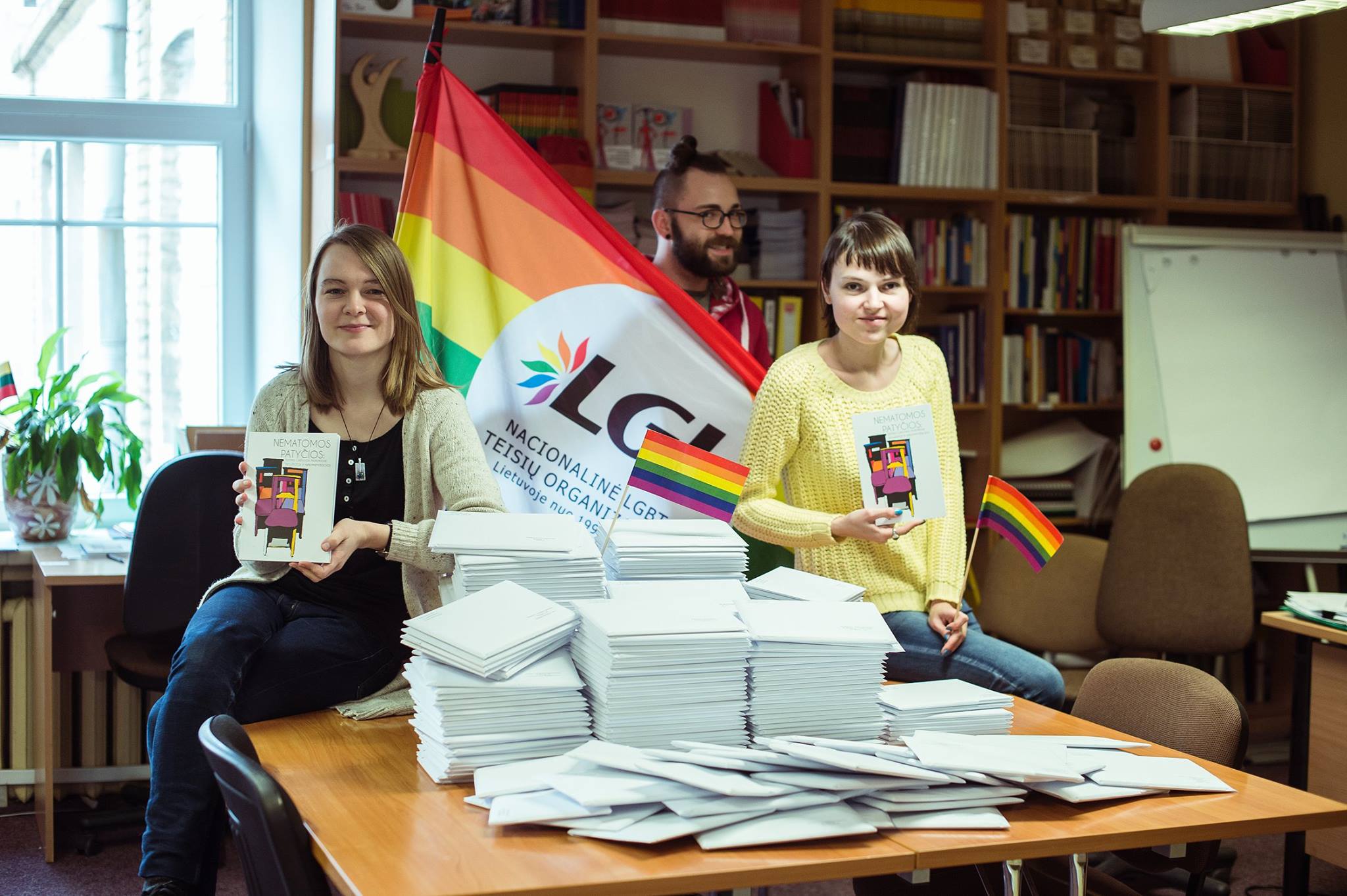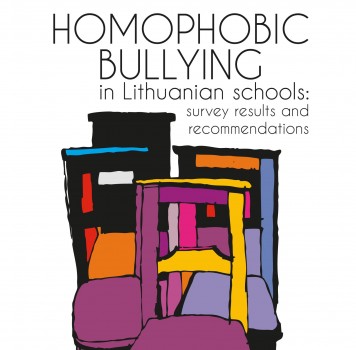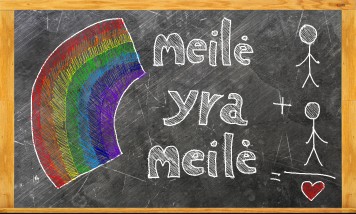On September 1st, 2017, Lithuanian schools adopted a new General Program for Health, Sexual Education and Family Planning, which, among other things, prevents the provision of physically or psychologically harmful, incorrect, biased or one-sided information, as well as that which encourages dissatisfaction with one’s body, appearance or sexual orientation, or discourages acceptance of these traits. However, it appears that not only teachers, administration and the education community, but even the Education Development Centre, which is responsible for pre-primary and general educational content, are unsure of how to practically implement the program’s provisions.
The following October 20th, Parliamentary Ombudsperson Raimondas Šukys, then temporarily covering the Equal Opportunities Ombudsperson’s duties, determined that the measure “Social Competence Education in Religion and Ethics Lessons” of the General Program for Health, Sexual Education and Family Planning, published on the Education Development Centre’s website, constituted discrimination against part of the LGBT* community. He urged the organizers to change the content to avoid promoting the formation of discriminatory views about gay individuals. On November 16th, the Ministry of Education and Science announced that the EDC had removed this measure from its website.
“Apparently, the specialist who wrote this measure thought it was appropriate. There were no broader experts consulted, no wider discussion about it, and this material was the result. I, myself, think the content is completely inappropriate, I’d like to say on the record that it’s been a misunderstanding, and that’s a shame,” Violeta Jonynienė, a methodologist at the Education Development Center, commented to INFO TV shortly afterward.
This wasn’t the first “misunderstanding” that EDC representatives had dealt with that year. The previous spring, a scandal arose over gay people being equated to murderers and cannibals in a tenth-grade religious education lesson at Telšių Žemaitės Gymnasium.
Having evaluated the situation surrounding the practical implementation of the General Program and the shortage of science-based information for students on LGBT* topics, LGL wrote to Jonynienė, suggesting that the EDC include the organization’s 2015 publication “Homophobic Bullying in Lithuanian Schools: Survey Results and Recommendations” in its list of teaching materials on its website. The publication contains the results of a survey performed by LGL on homophobic and biphobic bullying in Lithuanian schools, as well as recommendations for teachers and other specialists working with youth to combat abuse at school. Jonynienė responded by inviting representatives from LGL to participate in a November EDC meeting with the work group compiling the General Program for Health, Sexual Education and Family Planning. According to the methodologist, the meeting would incorporate expert evaluation of the suggested material.
Is the “nature” of homosexuality a barrier to ensuring safety at school for LGBT* students?

In 2015 LGL sent out a publication about homophobic bullying to Lithuanian schools and educational institutions
LGL representatives who attended the meeting presented the organization’s publication “Homophobic Bullying in Lithuanian Schools: Survey Results and Recommendations” to members of the work group. However, they noted that the meeting was also attended by some people who had not contributed to the General Program.
“Arriving at the meeting, I got the impression that not all of the participants had been invited by the organizers or had the expert knowledge to appropriately assess the suggested teaching material. We especially felt the EDC lacked the leadership to effectively carry out their responsibilities in the context of the General Program. One psychotherapist who participated in the meeting, Gintautas Vaitoška, gave scientifically ungrounded arguments against the inclusion of LGL’s publication in teaching materials, interrupted members of the work group, openly insulted and degraded speakers with other opinions, and invited more participants who believed in the benefits of gay conversion therapy,” said LGL’s communications coordinator Eglė Kuktoraitė, who took part in the work group’s meeting.
“Some of the information in this publication is inaccurate. In the publication, it says that sexual orientation is biologically determined, which is one-sided information,” said Vaitoška, known for his claims that homosexuality is an “emotional disorder that can be cured through therapy”.
In response to the LGL representative’s inquiry as to what his claims have to do with the necessity of ensuring safety at school for every student, Vaitoška recommended that LGL cut the publication’s pages referencing the World Health Organization’s 1992 statement that homosexuality is not an illness or psychological disorder.
“Conversion” expert included in the work group compiling teaching materials
“The sources must be thorough enough to leave no unanswered questions. We cannot provide misleading information to teachers. While the cause of homosexuality is not clear, upbringing most likely has an impact. Homosexuality, without a doubt, can be cured,” asserted Vaitoška.
A representative of a student organization contributed to the discussion by sharing the painful story of a loved one who took their life due to homophobic bullying. But this didn’t convince the psychotherapist to acknowledge the necessity of providing teachers with materials showing them how to combat bullying on the grounds of sexual orientation or gender identity, which, as a 2017 survey by LGL shows, affected 90% of the Lithuanian LGBT* high school students who responded.
“Why is the issue of homophobic bullying being prioritized above others? Fifth or sixth grade is too early to talk about sexual orientation,” said Kęstutis Mikolajūnas, a board member of the Lithuanian Parents Forum, of the proposed material showing how to address homophobic bullying.
“This really is a problem in schools. Teachers do not have the necessary information and are unable to address this form of bullying. The most common swear words that you hear from students are those associated with sexual orientation, but neither teachers nor students understand or acknowledge this. As far as I know, there are no other existing sources already accessible for teachers and students in the majority of Lithuanian schools,” said a representative of the Lithuanian Students’ Union.
When questioned by LGL’s representative about the work group’s principles, even the EDC representative was unable to give a clear answer. “The group was clearly making decisions without maintaining democratic principles in their voting. Gintautas Vaitoška, the psychotherapist who participated in the work group, was unreceptive to other participants’ arguments while sabotaging and interfering with the group’s work, and the EDC representatives did not show enough leadership to moderate the meeting and come to a decision on the suitability of the material suggested to them by LGL,” Kuktoraitė shared her impressions from the November meeting at the Education Development Centre.
Does bullying against LGBT* students take priority over other forms of bullying?
“Teachers in Lithuania don’t have as much authority as you’d like. Providing sources that are under debate really does not add value to education. Knowing parents’ level of tolerance, you don’t need to instigate society and push to get this program into schools faster. We can’t recommend ideological publications to teachers. Bullying against LGBT* students can’t take any priority over other forms of bullying,” clarified Mikolajūnas of the Lithuanian Parents’ Forum.
“Schools have to raise children the way their parents want. The issue of sexuality is very sensitive,” a representative of the National Family and Parents’ Institute seconded.
“Teachers, as a whole, don’t understand that there are LGBT* students in their schools. It’s obvious that they lack specific information about homophobic bullying, and general anti-bullying programs aren’t addressing it. Maybe the time has come to make some necessary changes so that teachers will be able to effectively contribute to the solution to homophobic bullying?” a member of the Lithuanian Students’ Union said.
“Youth who face bullying aren’t getting help or support from teachers, which makes them feel unwanted and unsafe. These students have to survive the effects of homophobic bullying on their own: lack of self-esteem, stress, and in extreme circumstances, depression and suicidal ideation. It’s well-established that LGBT* youth are eight times more likely than other young people to consider suicide,” said LGL’s volunteer coordinator Kamila Gasinska, a sexologist who authored the organization’s publication “Homophobic Bullying in Lithuanian Schools: Survey Results and Recommendations”.
“Unfortunately, even though the General Program for Health, Sexual Education and Family Planning went into effect in Lithuania on September 1st, teachers have been left in the dark on the issue of homophobic bullying throughout the implementation process. Without adequate leadership from the policy makers, it’s only a question of time until the Telšių Žemaitės Gymnasium incident repeats itself. What has to happen for LGBT* students’ voices to finally be heard in Lithuania?” Kuktoraitė concluded.
 This article is produced and published under the framework of the NEDF Institutional Development Project No. (2017) NOBR-135, supported by the Ministry of Social Security and Labor of the Republic of Lithuania.
This article is produced and published under the framework of the NEDF Institutional Development Project No. (2017) NOBR-135, supported by the Ministry of Social Security and Labor of the Republic of Lithuania.






